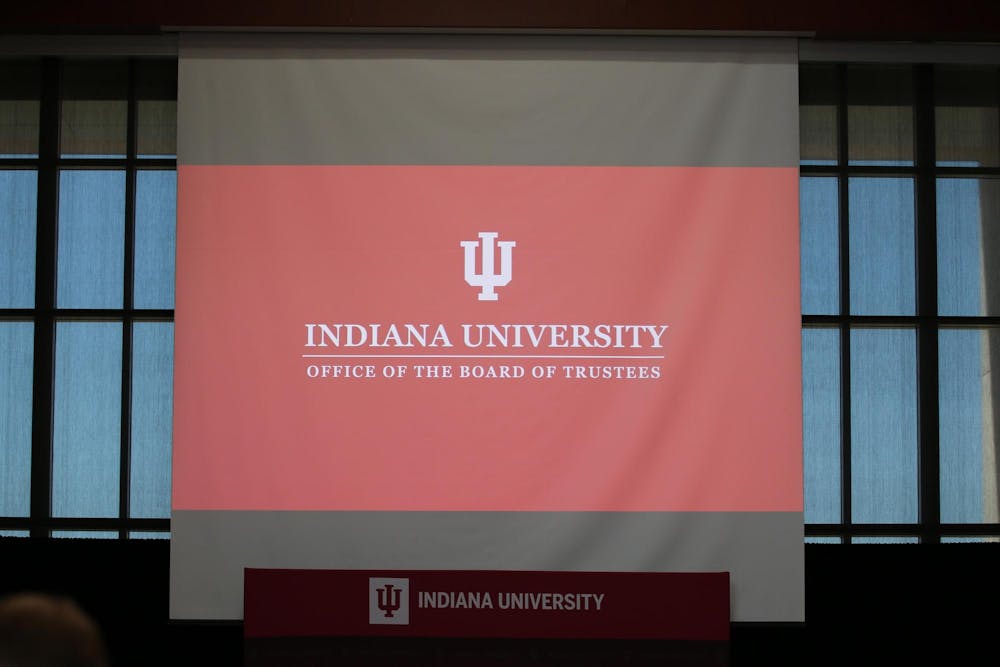The American Civil Liberties Union of Indiana filed a lawsuit Friday against both IU and Purdue University, again challenging Senate Enrolled Act 202.
According to an ACLU of Indiana press release, the lawsuit, filed in the U.S. District Court for the Southern District of Indiana, challenges Senate Enrolled Act 202, a law which increases the state legislature’s oversight of public universities and tenure criteria.
Faculty, administrators and students around the state have opposed the law, and IU President Pamela Whitten released a statement to Indiana Public Media in February expressing her concerns about the then-bill.
Indiana Gov. Eric Holcomb signed the bill into law in March, and the law took effect in July.
“We believe these policies infringe upon faculty members’ free speech and academic freedom, violating the First and Fourteenth Amendments to the Constitution,” the ACLU of Indiana said in the press release.
The complaint against Purdue names Purdue Fort Wayne professors Steven Carr and David Schuster as the plaintiffs. The complaint against IU lists IU Indianapolis professor James Scheurich and IU Bloomington professor David McDonald.
All four professors were the plaintiffs in the ACLU of Indiana’s original lawsuit filed in May against both universities.
U.S. District Court Judge Sarah Evans Barker dismissed the lawsuit in August, after Indiana Attorney General Todd Rokita filed a motion to dismiss it July. Barker said the lawsuit was premature and the professors’ rights had not been infringed upon.
Barker ruled before the start of fall semester classes, which started at Purdue on Aug. 19 and at IU on Aug. 26.
“As we stated in our initial lawsuit in May, this law puts professors in an impossible situation,” Stevie Pactor, an ACLU of Indiana staff attorney, wrote in the release. “One of our plaintiffs has already been the subject of multiple student complaints under the new university policy, all of which were ultimately dismissed. Professors should never be put in the position of choosing between their careers and their academic freedom.”
The law requires universities’ boards of trustees to implement policies prohibiting tenure or promotions from faculty members if they do not foster “intellectual diversity” in the classroom and requires a review of tenured professors every five years.
The ACLU of Indiana also filed a lawsuit against IU on Aug. 29. The lawsuit challenged the university’s new expressive activity policy, which took effect Aug. 1.
The organization also filed a lawsuit against IU in May to challenge campus bans for three plaintiffs arrested in the Pro-Palestinian encampment in April.
IU Executive Director for Media Relations Mark Bode said IU does not comment on pending litigation.
The IU Board of Trustees also passed two resolutions Friday in compliance with SEA 202, according to an email to the IU community from IU Vice President and General Counsel Anthony Prather.
The first resolution, the Indiana University Statement of Policy on Institutional Neutrality, is required by the law.
Prather wrote the university “can only take an official stance on political, moral or ideological issues that affect the core mission of the university and its values of free inquiry, free expression, and intellectual diversity.”
IU President Pamela Whitten received backlash in October 2023 after releasing a statement about the conflict in Gaza. The statement was criticized on X for its ambiguity.
She released a second statement two days later on the university’s X account, which received criticism for not addressing Muslim or Palestinian students. Over 2,000 people signed a petition titled “Ask IU’s President Whitten to Not Discriminate in her Empathy.”
The new resolution prevents IU community members from taking a position on behalf of the university. They can, however, express their views individually.
The board also passed a resolution which will create diversity committees on all IU core and regional campuses.
Prather wrote the committees will:
- Review and recommend employment policies concerning cultural and intellectual diversity issues
- Review faculty and administration personnel complaints concerning cultural and intellectual diversity issues
- Make recommendations to promote and maintain cultural and intellectual diversity among faculty members
- Make recommendations to promote recruitment and retention of minority and underrepresented students
- Issue an annual report stating findings, conclusions and recommendations of the committee to the IU Board of Trustees
IU received backlash for its SEA 202 implementation from students and faculty.
The University Alliance for Racial Justice, an advocacy group made of faculty, held a press conference Aug. 26 to lay out its “Protect IU from 202” demands of the university.
The group wanted IU to protect shared governance, diversity, due process, academic freedom, students and staff and the future.
Since the law took effect, IU has released several resources, including a slide deck and a frequently asked questions page.




